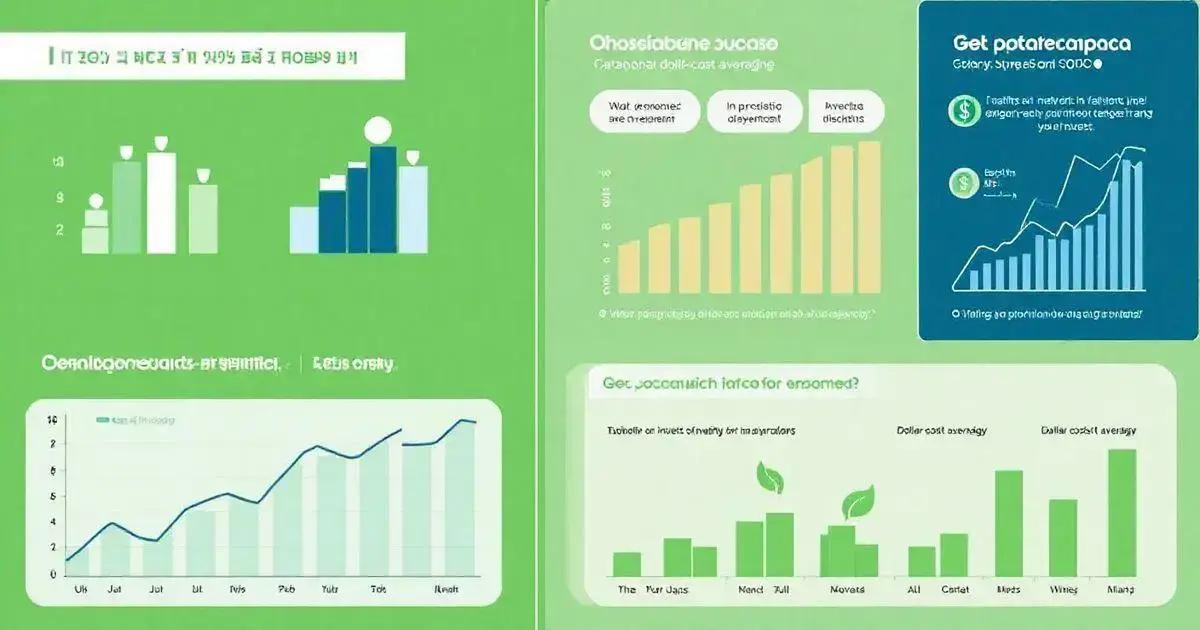Personal finance tips for 2025 are essential for anyone looking to take control of their financial future. With rising costs and evolving economic trends, making informed financial decisions is more important than ever. Managing money wisely can help individuals build stability and long-term security.
In today’s fast-paced world, understanding how to budget, save, and invest effectively is a crucial skill. From tracking expenses to exploring new investment opportunities, staying financially aware can make a significant difference. Small changes in spending habits can lead to substantial improvements in financial well-being.
By following the right personal finance tips for 2025, you can optimize your financial strategy and make smarter money choices. Discover key insights that will help you save more, invest wisely, and secure a stronger financial future. Keep reading to learn how to take charge of your finances this year!
Budgeting Basics for 2025
Creating a budget is a crucial step toward achieving financial stability. Personal finance tips for 2025 emphasize the importance of tracking income and expenses to identify savings opportunities. A well-structured budget allows for better financial decisions and long-term financial success.
1. Determine Your Income
Start by calculating your total monthly income, including your salary, freelance earnings, and passive income sources. Personal finance tips for 2025 highlight the importance of understanding your earnings to create a realistic financial plan.
2. List Your Expenses
Make a list of all your monthly expenses. Separate them into fixed costs, like rent and utilities, and variable expenses, such as groceries and entertainment. Personal finance tips for 2025 stress that tracking spending habits helps pinpoint areas for improvement.
3. Categorize Your Spending
Divide your expenses into categories such as housing, transportation, and personal care. By organizing spending, personal finance tips for 2025 suggest that you can better identify areas where adjustments can be made to improve financial efficiency.
4. Set Financial Goals
Define both short-term and long-term goals. Whether saving for a vacation or planning for retirement, personal finance tips for 2025 recommend setting clear objectives to stay motivated and on track with budgeting efforts.
5. Compare Income to Expenses
Compare your total income to your total expenses. Personal finance tips for 2025 emphasize that if expenses exceed earnings, adjustments must be made to ensure financial health and avoid debt accumulation.
6. Adjust as Necessary
If your spending surpasses your income, look for ways to cut unnecessary expenses. Personal finance tips for 2025 suggest reducing discretionary spending, finding affordable alternatives, or renegotiating bills to stay within budget.
Revisiting and adjusting your budget regularly is key to long-term success. Implementing these personal finance tips for 2025 will help you stay financially secure and build a more stable future.
Investing Strategies to Consider

Investing is a crucial aspect of building wealth, and there are numerous strategies you can consider in 2025. By understanding different investment avenues, you can make informed decisions that align with your financial goals. Here are some effective investing strategies:
1. Diversification
Diversification involves spreading your investments across various asset classes, such as stocks, bonds, and real estate. This reduces risk, as different investments can perform differently under various market conditions. Aim for a balanced portfolio to maximise returns while minimising potential losses.
2. Dollar-Cost Averaging
Dollar-cost averaging is an investment strategy where you regularly invest a fixed amount of money, regardless of market conditions. This can reduce the impact of market volatility and ultimately lower the average cost of your investments. Over time, it allows you to build wealth without trying to time the market.
3. Index Funds and ETFs
Index funds and exchange-traded funds (ETFs) are popular options for investors seeking low-cost diversification. These funds track specific market indices and are generally less risky compared to individual stocks. They provide broad market exposure and can be an excellent choice for long-term investors.
4. Growth vs. Value Investing
Growth investing focuses on stocks expected to grow at an above-average rate, while value investing seeks stocks that appear undervalued based on fundamental analysis. Understanding your personal risk tolerance can help you choose the right strategy. Growth stocks may offer higher returns, but they can also come with increased risk.
5. Real Estate Investments
Real estate investments can provide a stable income stream and potential appreciation over time. Consider rental properties, real estate investment trusts (REITs), or crowdfunding platforms to get started without needing significant capital upfront.
6. Sustainable and Ethical Investing
Sustainable investing focuses on companies that have positive social and environmental impacts. These investments align with your values while potentially generating financial returns. Look for funds that focus on renewable energy, social justice, and other ethical considerations.
By researching and implementing these investing strategies in 2025, you can enhance your portfolio and work towards achieving your financial goals.
Saving Techniques for All Ages
Saving money is a crucial part of financial health at any age. Here are effective saving techniques for all ages that can help everyone, from kids to retirees:
1. Start Early
It’s never too early to teach children about the importance of saving. Encourage them to set aside a portion of their allowance or gift money. Use clear jars or savings accounts to visually show their savings grow. This practice teaches them delayed gratification.
2. Set Specific Goals
Define clear savings goals, such as a new toy for kids or a vacation for adults. Having a specific goal in mind makes saving more motivating and helps track progress. Write down your goals and put them somewhere visible.
3. Use Automated Savings
For adults, consider setting up automated transfers from your checking account to your savings account. This ensures you save consistently without having to think about it. Treat savings like a recurring bill that must be paid.
4. Take Advantage of Discounts and Cash Back
Use apps or loyalty programs that offer discounts or cash back on purchases. This allows you to save money while spending. Always look for deals before purchasing and consider using cash-back credit cards responsibly.
5. Save Pennies with a Challenge
Try savings challenges, like the 52-week challenge, where you save an increasing amount each week. Start with R10 in week one, R20 in week two, and so on. This method encourages consistent savings and makes it fun.
6. Review Subscriptions and Memberships
Regularly review subscriptions and memberships to identify services you may not use anymore. Cancel those unnecessary subscriptions to free up extra cash for savings. This helps ensure your money is being spent wisely.
7. Get the Whole Family Involved
Encouraging a family savings plan can make saving more effective. Set collective goals and celebrate when milestones are reached. This creates a supportive environment and teaches everyone about teamwork in managing finances.
Implementing these saving techniques can lead to financial success at any age. Start small, be consistent, and watch your savings grow over time.
Debt Management Tips

Managing debt is an essential part of maintaining financial health. Here are some effective debt management tips that can help you stay on top of your financial obligations:
1. Create a Debt List
Start by making a list of all your debts. Include credit cards, loans, and any other borrowing. Note down the total amount owed, minimum payments, and interest rates. This will give you a clear picture of your debt situation and help you strategise repayment.
2. Evaluate Your Budget
Review your monthly budget to see how much money you can allocate to debt repayment. Identify areas where you can cut back on expenses and divert that savings to pay down debts. Consistent, extra payments can significantly reduce your debt over time.
3. Prioritise High-Interest Debt
Prioritising debts with the highest interest rates first can save you money. Focus on paying more than the minimum on these debts while keeping up with other payments. This approach can reduce the total interest you pay over the life of the loans.
4. Consider Debt Consolidation
Debt consolidation involves combining several debts into a single loan, typically with a lower interest rate. This can simplify payments and lower your monthly obligations. Research different consolidation options before choosing the best fit for your situation.
5. Communicate with Creditors
If you’re struggling to make payments, don’t hesitate to reach out to your creditors. Many lenders are willing to work with you to set up a payment plan or offer temporary relief. Being proactive can prevent late fees and negative impacts on your credit score.
6. Set up Automatic Payments
Consider setting up automatic payments for your debts. This helps ensure that you never miss a payment and helps you avoid late fees. Just make sure you maintain enough funds in your account to cover these payments.
7. Track Your Progress
Regularly review your debt repayment progress. Celebrate small milestones, like paying off a credit card or reaching a certain repayment amount. Tracking your achievements can keep you motivated and committed to your debt management journey.
These debt management tips can help you gain control over your finances and work towards a debt-free future. With persistence and a solid plan, you can overcome your debt challenges.
Retirement Planning Essentials
Essential Retirement Planning: Secure Your Future in 2025
Planning for retirement is a key step in achieving long-term financial security. Personal finance tips for 2025 emphasize the importance of early preparation to ensure a stable and comfortable future. Taking proactive steps now can help you build a strong financial foundation for retirement.
1. Start Early
Begin saving as soon as possible. The power of compounding interest allows even small contributions to grow over time. Personal finance tips for 2025 highlight that starting early can significantly increase your retirement savings.
2. Contribute to Retirement Accounts
Maximize contributions to accounts like retirement annuities or provident funds. These accounts often provide tax advantages and employer-matching contributions. Personal finance tips for 2025 stress that leveraging these benefits can help build a substantial retirement fund.
3. Understand Your Retirement Needs
Estimate your future expenses by considering your desired lifestyle, healthcare costs, and inflation. Personal finance tips for 2025 suggest planning ahead to ensure your savings align with your long-term financial goals.
4. Diversify Investments
Spread your investments across different asset classes such as stocks, bonds, and real estate. Personal finance tips for 2025 recommend diversification as a strategy to minimize risk and enhance potential returns.
5. Monitor Your Progress
Regularly review your retirement savings and investment performance. Personal finance tips for 2025 advise making necessary adjustments to stay on track with your financial objectives.
6. Be Prepared for Changes
Unexpected events such as job loss or health issues can impact your retirement plan. Having an emergency fund can help you navigate financial uncertainties. Personal finance tips for 2025 encourage building a safety net to protect your savings.
7. Consult a Financial Advisor
If you’re uncertain about your retirement strategy, seek professional guidance. A financial advisor can offer personalized insights to strengthen your plan. Personal finance tips for 2025 emphasize that expert advice can help maximize your financial potential.
By implementing these strategies, you can take control of your retirement planning and work towards a financially secure future.
Building an Emergency Fund

Building an emergency fund is a critical part of your financial planning. Here are essential steps for building an emergency fund effectively:
1. Define Your Goal
Start by defining how much you need in your emergency fund. A common recommendation is to save three to six months’ worth of living expenses. This amount can vary based on your specific needs, such as job security and personal circumstances.
2. Open a Dedicated Savings Account
Use a separate savings account for your emergency fund. This makes it easier to track your progress and prevents you from accidentally spending the money on non-emergencies. Look for a high-yield savings account to earn better interest on your savings.
3. Set a Monthly Savings Goal
Determine how much you can realistically save each month towards your emergency fund. Aim for a fixed amount that fits within your budget. Consider setting up automatic transfers to make saving easier and more consistent.
4. Cut Unnecessary Expenses
Review your monthly expenses and identify areas you can cut back. Use the money saved to contribute to your emergency fund. Small sacrifices today can lead to greater security tomorrow.
5. Use Windfalls Wisely
If you receive unexpected money, like a tax refund or bonus, consider putting a portion into your emergency fund. This can help you reach your goal faster and strengthen your financial safety net.
6. Keep It Accessible but Not Too Accessible
Your emergency fund should be easily accessible for genuine emergencies, but not so easily reachable that you’re tempted to spend it. Avoid using this money for planned expenses or luxuries.
7. Reassess Periodically
As your financial situation changes, reassess your emergency fund goals. If your expenses increase or you change jobs, you may need to adjust the amount you save. Regularly evaluate your progress and make necessary adjustments.
Taking these steps to build an emergency fund can provide peace of mind and help you handle unexpected financial challenges.
FAQ – Frequently Asked Questions about Practical Personal Finance Tips for 2025
Why is budgeting important for personal finance?
Budgeting helps you track your income and expenses, enabling you to make informed financial decisions and work towards your savings and spending goals.
What are some effective saving techniques?
Effective saving techniques include setting specific savings goals, automating savings transfers, and using discounts or cash-back offers when making purchases.
How can I manage my debt better?
Managing debt involves creating a debt list, prioritising high-interest debts, and considering options like debt consolidation to simplify payments.
What should I include in my retirement planning?
Your retirement planning should include setting a savings goal, contributing to retirement accounts, understanding your future needs, and diversifying your investments.
How can I build an emergency fund?
To build an emergency fund, define a savings goal, open a dedicated account, set monthly savings targets, and make use of any windfalls wisely.
What is the recommended amount for an emergency fund?
It’s generally recommended to save three to six months’ worth of living expenses in your emergency fund to cover unexpected financial challenges.
Check out our article on 5G Technology to explore how this next-generation network is revolutionizing connectivity and transforming industries.
